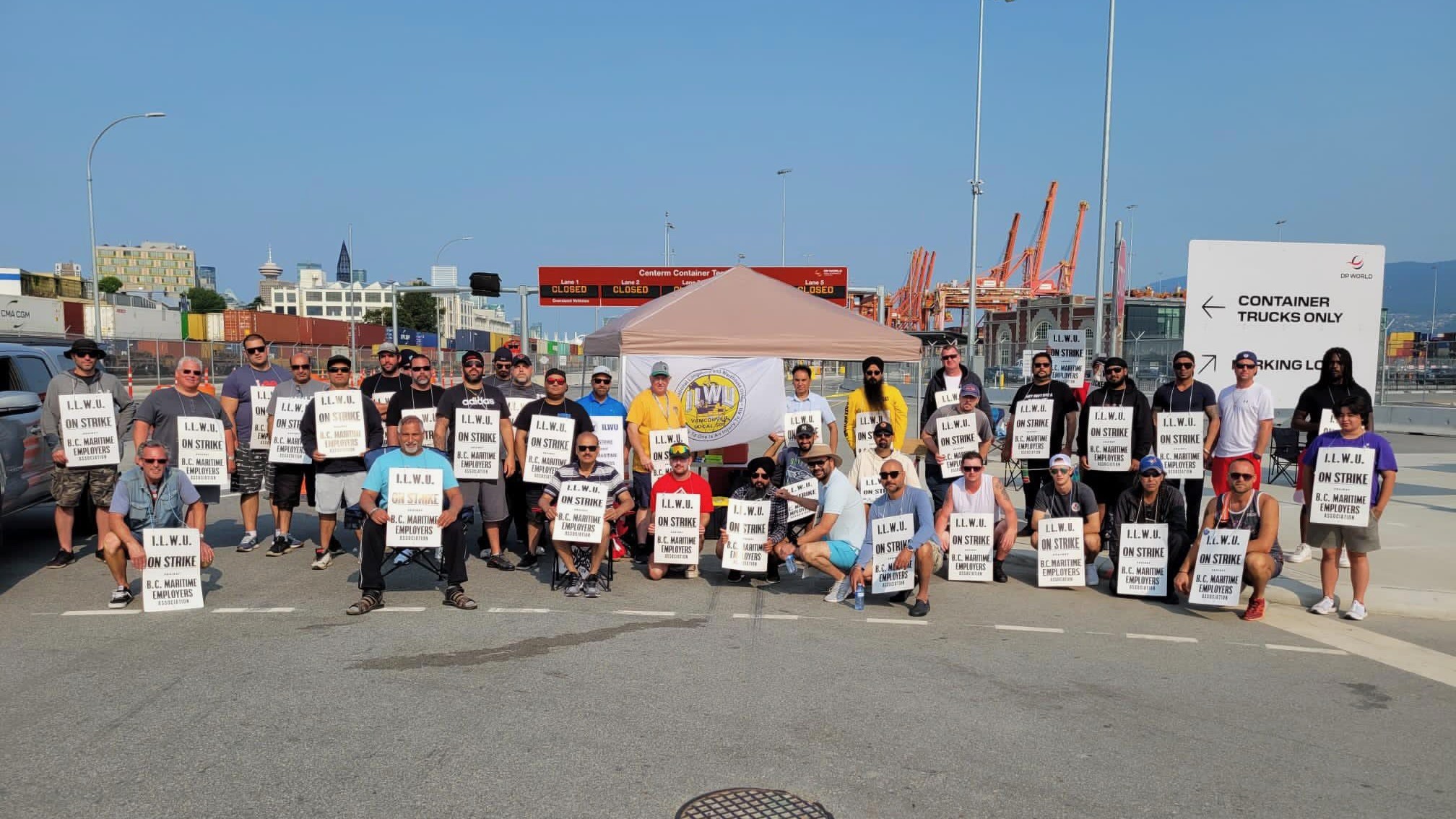Minister O’Regan: ‘We do not want to be back here again’
A tentative agreement has been found to end the 13-day strike at B.C.’s ports.

Workers strike at the Port of Vancouver, Canada’s largest port. – ILWU Canada
Key Takeways:
- After federal mediators stepped in, both parties have tentatively agreed to a four year deal that would open B.C.’s ports back up.
- The 13-day port strike is the longest in decades, disrupting an estimated $9.7 billion in trade.
- Some pushed federal officials to develop new tools that might prevent future strikes.
The Whole Story:
A tentative four-year deal has been reached to end a strike at B.C.’s ports.
Federal Labour Minister Seamus O’Regan announced that he received notice Thursday morning, July 13, that the British Columbia Maritime Employers Association (BCMEA) and the International Longshore and Warehouse Union (ILWU) have accepted the Terms of Settlement from federal mediators.
The parties have reached a tentative agreement and they are finalizing details for the resumption of work at the ports.
“We thank the union and the employer for their commitment to the collective bargaining process and federal mediators for their instrumental role in supporting the parties in their negotiations and proposing the successful settlement,” said O’Regan.
He noted that the scale of the disruption has been significant.
Greater Vancouver Board of Trade President and CEO, Bridgitte Anderson explained that it will still take time to get operations back to normal, noting that it is the longest strike the region has had in nearly 40 years. It also follows years of already disrupted supply chains.
“The 13-day strike has had a significant impact on Canada’s west coast ports and Canadian economy, disrupting an estimated $9.7 billion in trade,” said Anderson. “The consequences of the strike have been felt across various industries nationwide and will continue for some time.”
She urged the federal government to explore adding additional tools in their toolkit that can better address labour disputes on the waterfront to avoid further damage to Canada’s supply chains.
O’Regan stressed that the disruption is not something Ottawa wants to see repeated.
“The extent of it has shown just how important the relationship between industry and labour is to our national interest,” he said. “Our supply chains and economy depend on it. We do not want to be back here again. Deals like this, made between parties at the collective bargaining table, are the best way to prevent that. They are the best way to preserve the long-term stability of Canada’s economy. But we do not want to be back here again.”

